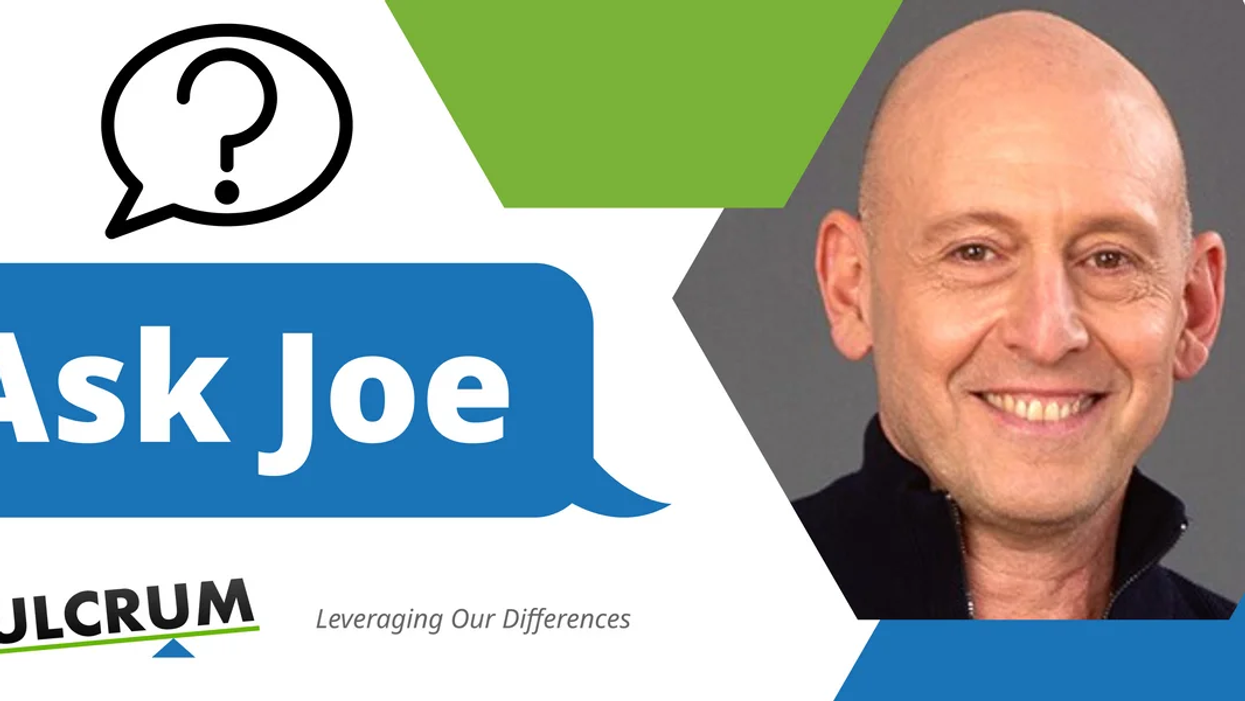Hi, Joe.
I’m not sure if you address questions like this, but I’ll try anyway. I am the CEO of a small company and I’m noticing that with all the political and economic turbulence, the effects of the pandemic and many people choosing to find jobs where they can work from home, or just retire, it’s getting harder to keep things going and keep my staff motivated. Any suggestions?
Fatigued
Hey, Fatigued.
Of course this is a question I can address; thanks for asking it. In fact, this recently came up with a coaching client of mine, a CEO of a local affiliate of a national organization. She brought in The Weston Network to work with her and her executive team over a six-month period on our Resilient Power Leadership program. We both expressed some level of concern that as we look to the immediate future, we see a continuation of the uncertainty and volatility that we have experienced the last couple of years with the pandemic.
I commended her on following her intuition to embark on a training like this as a way to be prepared for the myriad unknowns. It was her vision to create an executive team that cultivated more cohesion, accountability, trust, care and support for one another, as well as personal and group autonomy. I then shared with her an image that I’ve used for years that seems to be taking on a deeper implication at this time: When designing a skyscraper, architects will make sure the structure of the building has enough resilience so that it can sway with the wind patterns at that height. Without this compensation for the turbulence, the structure will snap.
These are the discussions I am having with the leaders I am currently coaching. What will it take to create the optimal structure for your organization so, like a skyscraper, it will withstand even the most challenging turbulence? How urgent is it for you to implement strategies that will upgrade the skill set and internal team building that guarantees an enhancement of the company’s resilience? For me, resilience does not mean suffering or enduring. When we are truly resilient, we are present, connected, maintaining a steady balance, as well as feeling confident to flow with challenges as they arise. We have vitality, stability and clarity, and we can tap into our creative problem-solving.
The design starts with embracing what many organizations worldwide are stepping into – shifting from a rigid, hierarchical leadership approach (where everything flows to and from the leader) to a more fluid, circular leadership approach. In other words, while still maintaining control of the direction and workings of the organization, finding ways to bring in more voices, get more input, get more buy-in from staff, and empower your executive team to creatively lead with more authority and autonomy.
Once this process has begun, the next step includes strengthening and upgrading the internal structure of the executive team – to continue the skyscraper metaphor, that means reinforcing your foundation and scaffolding so you can trust them with creatively adapting to an ever-changing world. That includes upgrading skills for approaching difficult conversations and holding each other accountable, in order to increase trust and safety. From here, the executive team repeats the same process with their department or team, creating more organization-wide cohesion, trustworthy structures and resilience.
By finding ways to empower each individual in combination with strengthening the relationships with each member of your team, you should be able to shift some of your attention away from the internal day-to-day tasks. You will see more time and energy focusing on your vision and on the organization’s increased impact with the community at large and other stakeholders. Taking on more of a visionary role, you will be well positioned to offer the support and strength needed by your staff, and maybe even your community, in times of challenge, offering hope and direction while navigating the unknown.
While this is an abstract offering, Fatigued, I hope it helps you think in a way that activates some creativity. The bottom line is that while none of us on our own have the power to hold back the current unknowns and challenges, where we do have power is preparing ourselves in the most time- and cost-efficient way with a plan to increase both personal and group resilience – remaining vital, clear and grounded, and deepening and trusting the integrity of our connections and relationships.
How are you getting ready for the possible effects of our ongoing economic unpredictability, social unrest, and increases in resignations and retirements? What are you doing to strengthen the internal structure of your organization? How are you encouraging or guiding your staff to cultivate resilience? These are the questions I would offer to any leader looking ahead to the next few years. Those who take the time now to build resilience and strong bonds based on safety and trust will be the ones who not only survive, but thrive.
While spending time reinforcing your foundation, keep aiming high,
Joe
Learn more about Joe Weston and his work here. Make sure to c heck out Joe’s bestselling book Fierce Civility: Transforming our Global Culture from Polarization to Lasting Peace, published March 2023.
To Ask Joe, please submit questions to: AskJoe@Fulcrum.us.



















Marco Rubio is the only adult left in the room